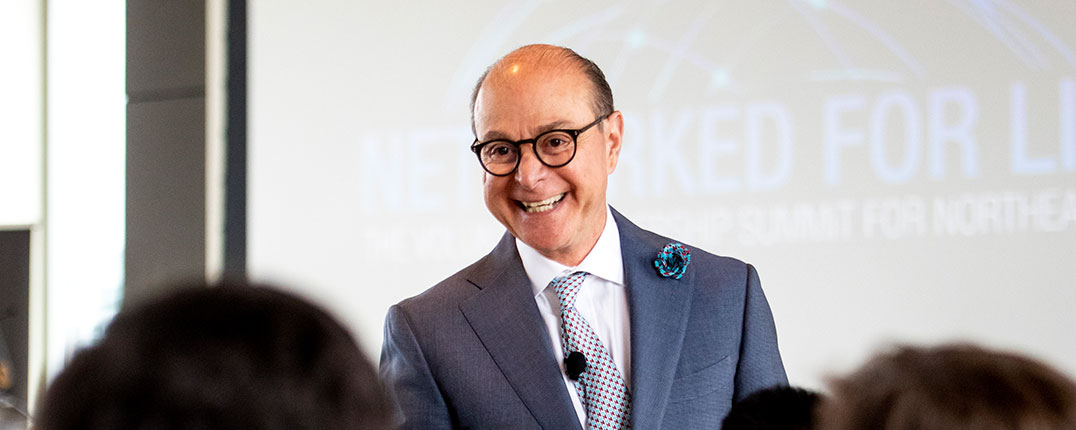Ask Questions in Search of the Truth
Members of the class of 2010, I offer you my sincere congratulations. My faculty colleagues, the trustees, your family and friends all share in your joy and take pride in your accomplishments.
Phil Hancock, Noah Kaufman and Professor Hackney, thank you for your thoughtful words.
Professor Koh, thank you for your inspiring address; we are honored to welcome you to the Northeastern family.
Graduates, I hope you see this day not as the finish line, but as the starting gate. You begin your careers at a time of unprecedented opportunity.
Perhaps the most important aspect of your legal education is that you did much more than accumulate knowledge. Law school taught you how to think. How to analyze complexity. How to ask questions in search of the truth.
This is very important. The world’s most complex challenges are illuminated by thoughtful, penetrating questions. And not just linear questions that generate simple answers. I also mean the questions that reshape and reframe. Questions that upend the way we think. Questions that shake our foundations.
As you leave law school and pursue a broad range of careers—including work outside the law—I hope you will always remember to question yourselves as well. Question your beliefs. Question your assumptions. Question your certainty.
At times, questioning yourself may seem like an exercise in self-doubt. Like an act of insecurity. This is not the case. Questioning yourself, and your certainties, is a sign of intellectual courage. The act of a genuine truth-seeker.
If your ideas are built on rigid ideology, instead of thoughtful nuance, you will miss out on the interesting contours of life. Instead of navigating the world with a nimble mind, you run the risk of becoming intellectually brittle. Of being one-dimensional. This can only limit you and your aspirations.
So be courageous. Challenge the way things are. Be guided by justice, motivated by a sense of purpose. And be relentless. This is how you will reach deeper levels of understanding about your profession and the higher purpose it serves.
It is how truth and justice will best be served. But most importantly, it will allow you to live a life of personal fulfillment as well as professional accomplishment.
As you go forth on your path, always remember: the core values and skills you acquired at Northeastern will help you succeed. As alumni, stay true to the education and the friendships you nurtured here. And whatever city or country or continent you call home in the future, always think of Northeastern University as your permanent home in the world.
The world will always be your classroom. And this University, and the knowledge you acquired here, will always be your guiding star.


